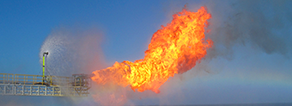Shell U.K. Ltd announced it has completed the restart of operations at the Pierce field in the UK Central North Sea, following a “significant upgrade” to allow gas to be produced after years of the field producing only oil.
The Pierce field lies around 165 miles (265km) east of Aberdeen in water depths of around 262 feet (85m). It was discovered in 1975, with oil being produced since 1999.
Pierce is a joint venture between Shell (92.52%) and Ithaca Energy (UK) Limited (7.48%.)
Peak production is expected to reach 30,000 barrels of oil equivalent per day, which is more than twice the production prior to the redevelopment, with more gas being produced than oil.
Shell said the redevelopment of the Pierce field is part of Shell UK’s broader intent to invest up to £25 billion in the UK energy system in the next decade “subject to board approval and a stable investment climate” — 75% of which will be focused on the development of low and zero-carbon products and services.
“To deliver this significant investment, projects must remain economically viable under the recently revised UK tax regime,” said Shell.
On the restart of operations at the Pierce field, Shell said: “Substantial modifications were made to the Haewene Brim floating production, storage and offloading vessel (FPSO), which is used to produce hydrocarbons at the Pierce field.
“A new subsea gas export line was also installed, connecting to the SEGAL pipeline system, which brings gas ashore at St Fergus, north of Aberdeen.”
Shell Upstream Director Zoe Yujnovich said: “… the completion of this major project is testament to Shell’s long-standing commitment to the UK North Sea.
“We took this investment decision in 2019, and it is now increasing locally produced gas right at the time when this additional supply is critically important for the UK’s energy security. It’s a source of huge satisfaction when projects like Pierce come to fruition.”
Shell said that to enable the upgrade, the FPSO, owned and operated by Bluewater, stopped producing in October 2021.
It then spent six months in dry dock where it was transformed into a vessel that could also produce gas, which had previously been re-injected into the reservoir.
Under the new plans, the gas will be sent through newly installed subsea pipelines and the oil will be transported by tanker, as before.
Shell said the redevelopment of the field is consistent with the UK Government’s North Sea Transition Deal.
It said its other recent UK projects include its plans to develop floating offshore wind in Scotland which could bring clean energy to power the equivalent of 6 million homes, the Jackdaw gas field, as well as its commitment “to growing the UK’s electric vehicle charging infrastructure.”
